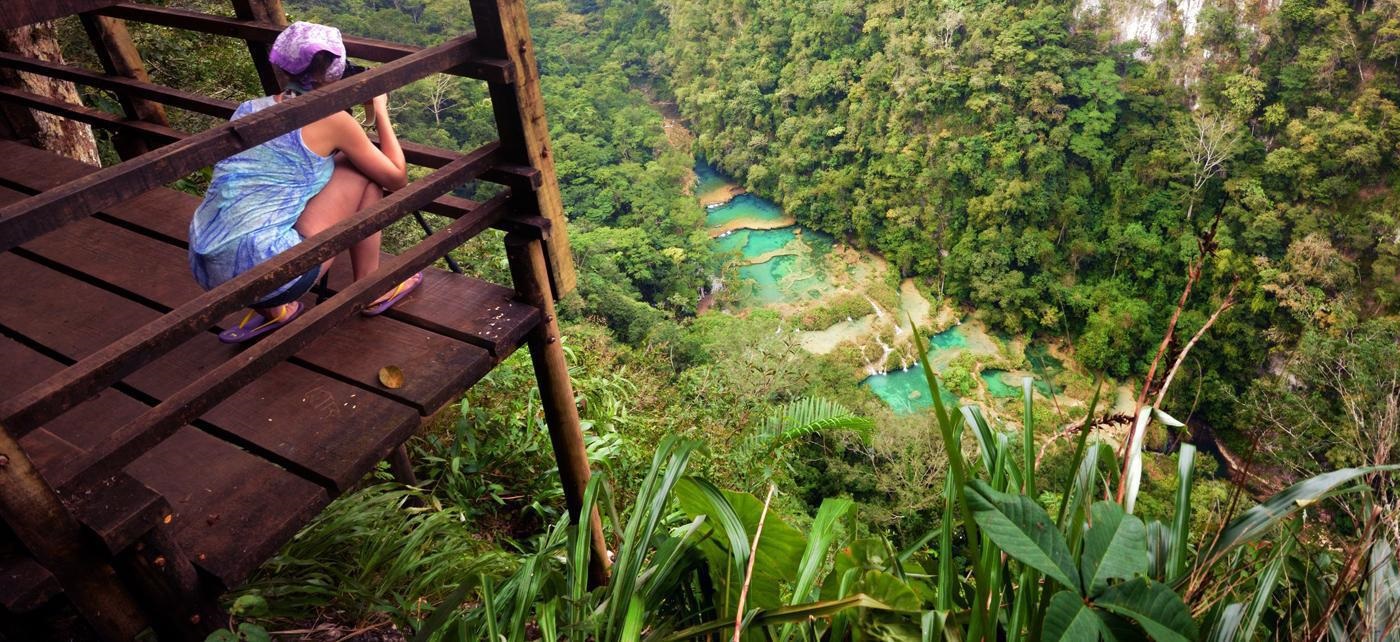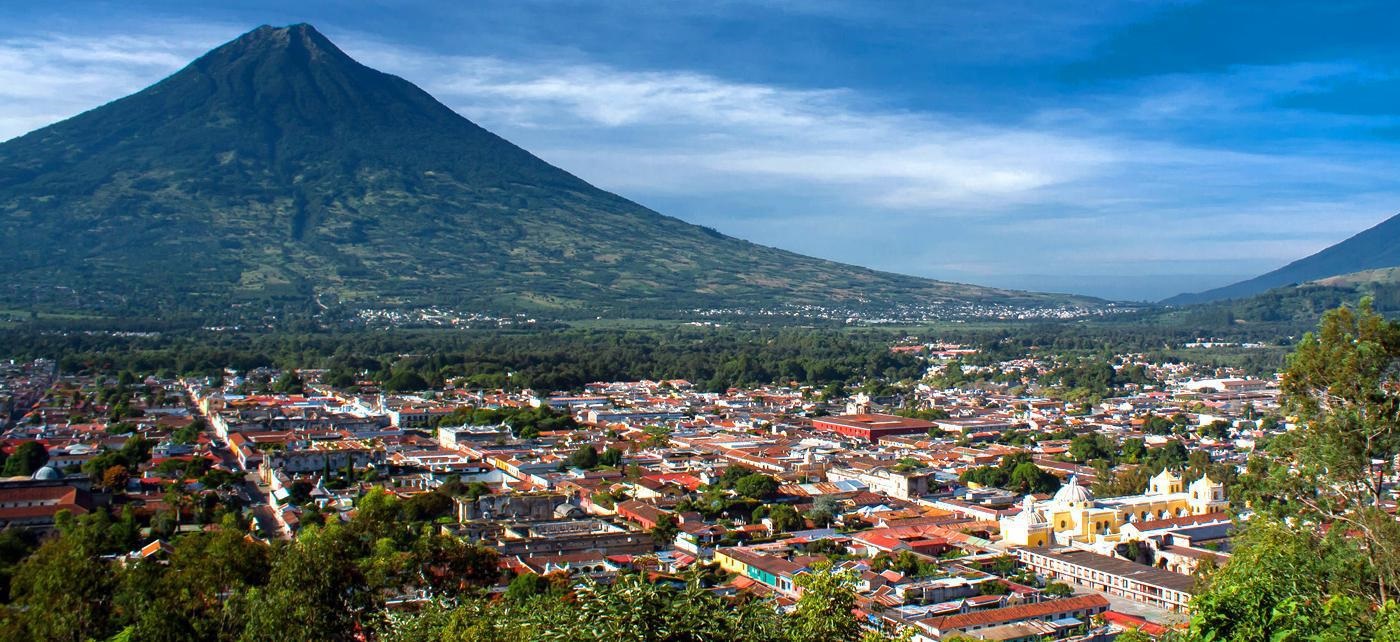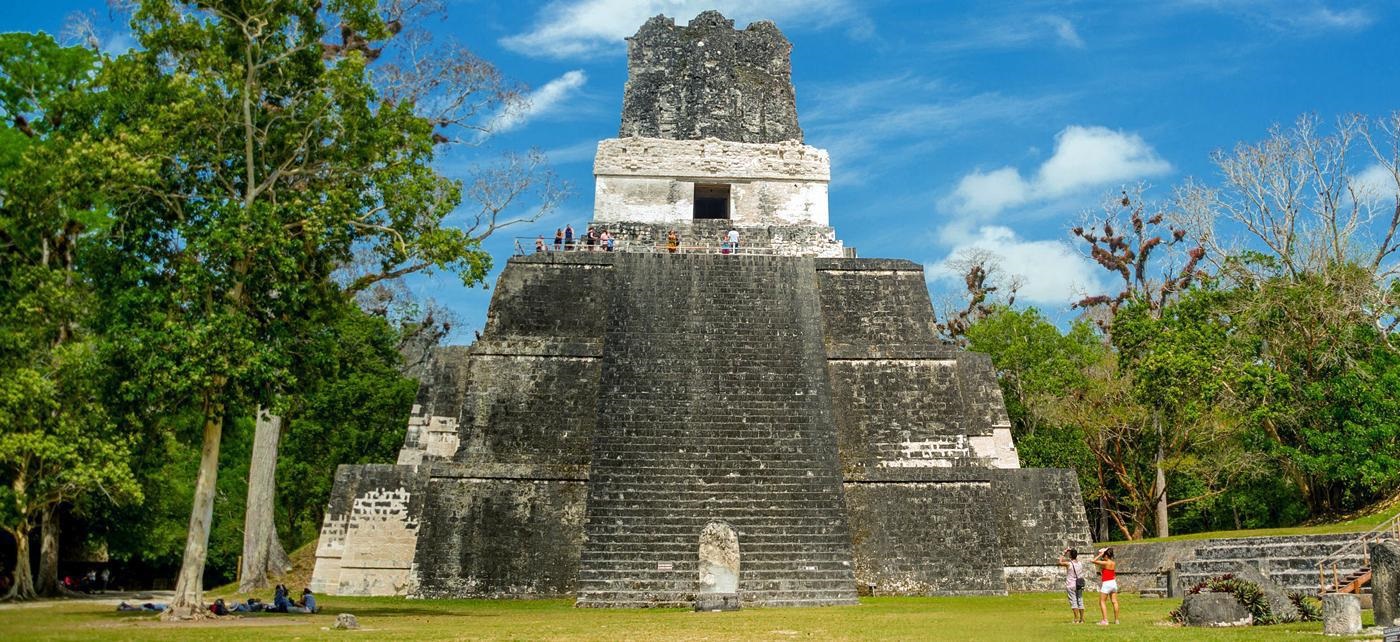Guatemala is a country in Central America bordered by Mexico to the north and west, the Pacific Ocean to the southwest, Belize to the northeast, the Caribbean to the east, and Honduras and El Salvador to the southeast. Its area is 108,890 km˛ (42,043 mi˛) with an estimated population of 13,276,517.
A representative democracy, its capital is Guatemala de la Asunción, also known as Guatemala City. Guatemala's abundance of biologically significant and unique ecosystems contributes to Mesoamerica's designation as a biodiversity hotspot. The former Mayan civilization was a Mesoamerican civilization, which continued throughout the Post-Classic period until the arrival of the Spanish. The Mayans lived in Guatemala, Honduras, Belize, the southern part of Mexico and northern parts of El Salvador before European settlers arrived.
The first evidence of human settlers in Guatemala goes back to at least 12,000 BC. There is evidence that may put this date as early as 18,000 BC, such as obsidian arrow heads found in various parts of the country. There is archaeological proof that early Guatemalan settlers were hunters and gatherers, but pollen samples from Petén and the Pacific coast indicate that maize cultivation was developed by 3500 BC. Sites dating back to 6500 BC have been found in Quiché in the Highlands and Sipacate, Escuintla on the central Pacific coast.
On September 15, 1821, the Captaincy-general of Guatemala officially proclaimed its independence from Spain and its incorporation into the Mexican Empire, which was dissolved two years later. This region had been formally subject to New Spain throughout the colonial period, but as a practical matter was administered separately. All but Chiapas soon separated from Mexico after Agustín I from Mexico was forced to abdicate.
Guatemala is a constitutional democratic republic whereby the President of Guatemala is both head of state and head of government, and of a multi-party system. Executive power is exercised by the government. Legislative power is vested in both the government and the Congress of the Republic. The judiciary is independent of the executive and the legislature. Álvaro Colom is the President of Guatemala as of 14 January 2008.
According to the CIA World Factbook, Guatemala's GDP (PPP) per capita is US$5,000; however, this developing country still faces many social problems and is among the 10 poorest countries in Latin America. The distribution of income remains highly unequal with more than half of the population below the national poverty line and just over 400,000 (3.2%) unemployed. The CIA World Fact Book considers 56.2% of the population of Guatemala to be living in poverty.
Guatemala has produced many indigenous artists who follow centuries-old Pre-Columbian traditions. However, reflecting Guatemala's colonial and post-colonial history, encounters with multiple global art movements also have produced a wealth of artists who have combined the traditional so-called "primitivism" or "naive" aesthetic with European, North American, and other traditions. The Escuela Nacional de Artes Plásticas "Rafael Rodríguez Padilla" is the country's leading art school, and several leading indigenous artists, also graduates of that school, are in the permanent collection of the Museo Nacional de Arte Moderno in the capital city. Contemporary Guatemalan artists who have gained reputations outside of Guatemala include Dagoberto Vásquez, Luis Rolando Ixquiac Xicara, Carlos Mérida, Aníbal López, Roberto González Goyri, and Elmar René Rojas.


